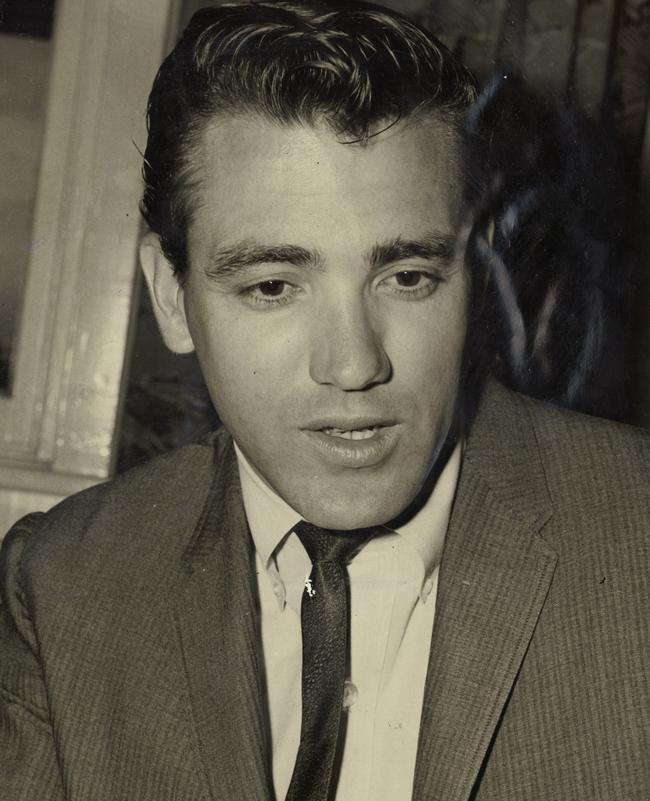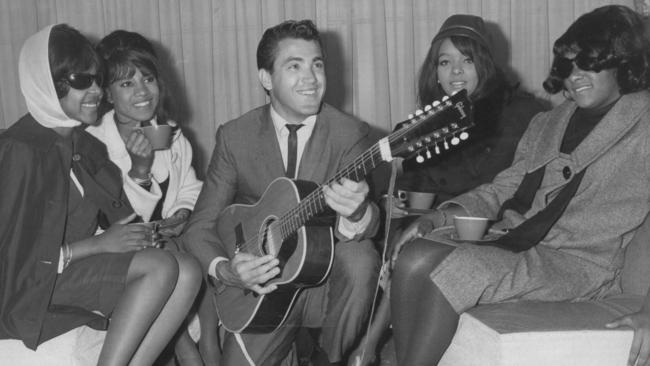Jimmie Rodgers
Jimmie Rodgers

James Charles Rodgers, born on September 8, 1897, and passing on May 26, 1933, was an iconic American singer-songwriter and musician who gained immense popularity in the late 1920s. Revered as the "Father of Country Music," Rodgers is celebrated for his unique yodeling style and was affectionately known as "The Singing Brakeman" and "America's Blue Yodeler." His influence transcended generations, inspiring countless artists, and earning him a place in multiple halls of fame.
Hailing from Meridian, Mississippi, Rodgers was raised by his father, Aaron Rodgers, a railroad worker. His early years were marked by frequent relocations dictated by his father's job and his own battles with poor health. Exposed to diverse musical influences from vaudeville shows during his adolescence, Rodgers displayed his talent early, winning a local singing contest at just 13. He then embarked on a journey through the Southern United States with a traveling medicine show before returning home to Meridian with his father.
Dropping out of school, Rodgers joined the Mobile and Ohio Railroad, starting as a waterboy and later working as a brakeman. Immersed in the railroad culture, he was captivated by the music of the gandy dancers and their spontaneous blues performances, which deeply influenced his musical style. Diagnosed with tuberculosis in 1924, Rodgers eventually left railroad work in 1927 to focus entirely on his music career.
Joining the Tenneva Ramblers band in 1927, Rodgers found himself recording with them at a radio station and later performing at resorts in the Blue Ridge Mountains. It was during this time that he learned of Ralph Peer's field recordings for the Victor Talking Machine Company in Bristol, Tennessee. Despite being deserted by his band, Rodgers recorded solo during the Bristol sessions, and his talent caught Peer's attention. Subsequently, a second recording session was arranged in Camden, New Jersey, at Rodgers's insistence.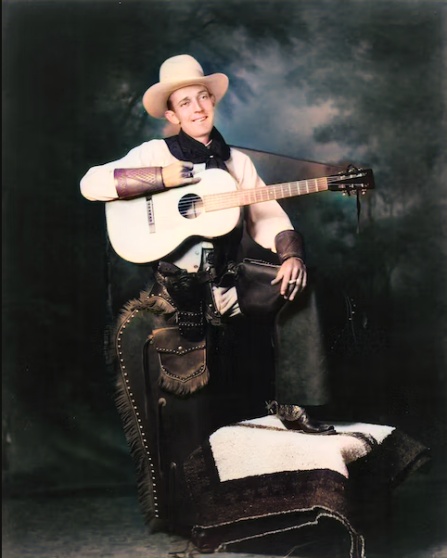
The Camden session produced Rodgers's breakout hit, "Blue Yodel No. 1 (T for Texas)," which catapulted him to national fame and kickstarted his recording career with Victor. Over the course of his career, Rodgers recorded over 100 songs, leaving an indelible mark on the landscape of American music and solidifying his legacy as a pioneer of country music.:max_bytes(150000):strip_icc():focal(677x419:679x421)/Jimmie-Rodgers-1-e4d49c195a6b455784aa8f652e8ff67d.jpg)
Jimmie Rodgers, born on September 8, 1897, into the Rodgers family, traces his lineage back to English and Irish immigrants who settled in the United States before the American Revolution. The family initially established roots around the Appalachian Mountains before migrating to various regions in the Southern and Western United States. Both of Rodgers' grandfathers served in the Confederate States Army during the American Civil War. Following the war, his maternal grandfather settled in Meridian, Mississippi, while his paternal grandfather made his home around Geiger, Alabama.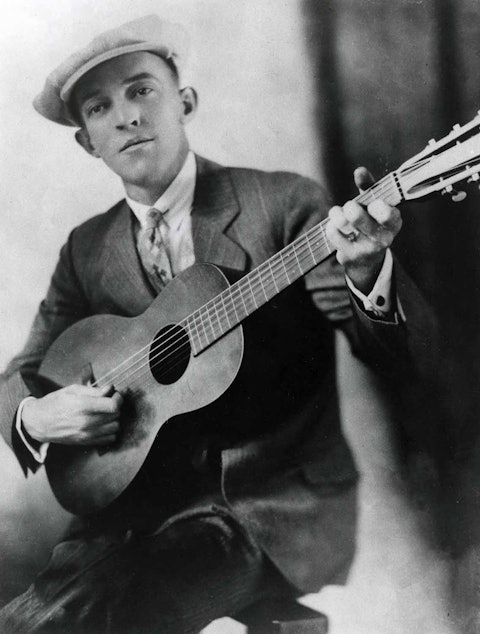
Rodgers's father, Aaron, was employed by the Mobile and Ohio Railroad, eventually rising to the position of foreman. In 1884, he married Eliza Bozeman, and the couple navigated life in the railroad work camps as Aaron's job took them to different locations along the railway lines. The family briefly settled in Pine Springs, located north of Meridian, Mississippi.
Jimmie Rodgers, often referred to as the "Singing Brakeman," was born amid these circumstances, although the exact location of his birth remains a point of contention. While Meridian is commonly cited as his birthplace in records, Rodgers himself later signed documents indicating Geiger, Alabama, as his birthplace. Rodgers's upbringing was marked by hardship and loss; his mother, Eliza, faced health challenges exacerbated by the unsanitary conditions of the railroad camps. After suffering two miscarriages, her health deteriorated, leading Aaron Rodgers to leave his railroad job and transition to farming to be closer to his wife. Tragically, Eliza passed away in 1903 when Jimmie was just six years old, leaving a profound impact on him.:max_bytes(150000):strip_icc():focal(427x449:429x451)/Jimmie-Rodgers-3-faeead310967434fb3498cc2055f2ecd.jpg)
Following his mother's death, Jimmie and his brother Talmage were sent to live with relatives in Scooba, Mississippi, and later in Geiger. Education was irregular for Jimmie during this period, particularly after the family's move to Lowndes County, Mississippi. However, upon settling in Meridian, Jimmie was enrolled in the local high school, although conflicts with his new stepmother and his father's return to railroad work disrupted his attendance.
Despite the challenges, Jimmie found solace and inspiration in entertainment, frequenting theaters to watch vaudeville shows and movies. He developed a keen interest in the industry and sought odd jobs to support his interests. In 1906, he lived with his older brother Talmage and aunt Dora Bozeman in Pine Springs, where he found stability and began attending school regularly. His time there provided a semblance of routine and education until his return to Meridian in 1911.
After returning to Meridian, Jimmie Rodgers resumed his life on the streets, finding refuge in his uncle Tom Bozeman's barbershop where he often dozed off in the upstairs apartment during the day. In a bid to generate income, Rodgers organized a neighborhood carnival that toured nearby towns, using the proceeds to cover the cost of makeshift tents. Bolstered by the success of his venture, he financed a second show, initially unbeknownst to his father.
Rodgers's talent soon gained recognition when he won a contest at the local Elite Theater for his renditions of "Steamboat Bill" and "I Wonder Why Bill Bailey Don't Come Home." This achievement led him to join a medicine show, although he left abruptly, citing mistreatment by the proprietor.
At the age of thirteen, Rodgers briefly worked for a tailor in West Blocton, Alabama, until his father intervened, intending to enroll him in a new school in Meridian. However, this plan was disrupted by the death of Rodgers's stepmother. Instead of returning to school, Jimmie followed his father back to the Mobile and Ohio Railroad, where he embarked on learning the ropes of railroad work.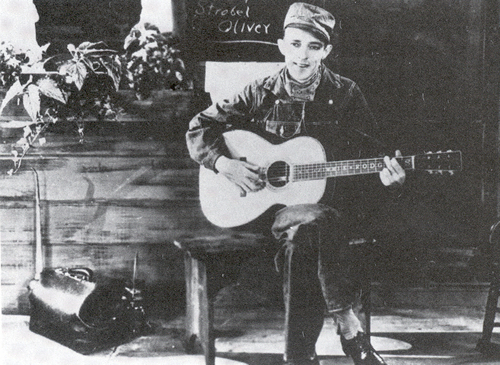
Starting as a waterboy for the black gandy dancer crews, Rodgers immersed himself in the railroad culture, absorbing their jargon, work songs, and banjo playing. Progressing through various roles, he became a baggage handler and eventually a brakeman, traversing the railway lines from Mississippi to Texas.
In January 1917, Rodgers met Stella Kelly in Durant, Mississippi, and the couple married on April 6, 1917. Their early years together were marked by frequent moves and financial struggles, with Rodgers working odd jobs to support them. Despite attempts at stability, including a stint as an apprentice mechanic in Louisville, Mississippi, the marriage faltered, prompting Rodgers to seek employment elsewhere.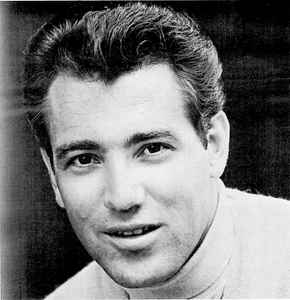
He found work with the New Orleans and Northeastern Railroad (NO&NE) but was eventually dismissed in 1920. Undeterred, Rodgers continued to seek opportunities in the railway industry, taking on roles as a brakeman and flagman across different railway lines, including the Vicksburg, Shreveport, and Pacific Railway. Throughout this period, Rodgers honed his musical talents while juggling the demands of his railroad career and personal life.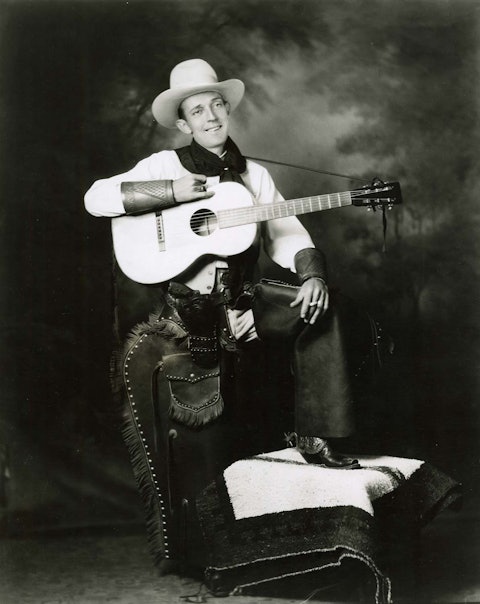
Footnotes
- Wynne, Ben 2014, p. 91, 92.
- ^ Mazor, Barry 2009, p. 12.
- ^ Wynne, Ben 2014, p. 93.
- ^ Brown, Alan 2015, p. 33.
- a b Wynne, Ben 2014, p. 94.
- a b Porterfield, Nolan 2007, p. 12.
- ^ Porterfield, Nolan 2007, pp. 12–15.
- ^ Porterfield, Nolan 2007, p. 15.
- ^ Porterfield, Nolan 2007, p. 16.
- ^ Porterfield, Nolan 2007, p. 18.
- a b Porterfield, Nolan 2007, p. 19.
- ^ Porterfield, Nolan 2007, p. 22.
- ^ Porterfield, Nolan 2007, p. 23.
- ^ Greenway, John 1957, p. 232.
- ^ Barkley, Elizabeth 2007, p. 175.
- ^ Porterfield, Nolan 2007, p. 27.
- ^ Porterfield, Nolan 2007, pp. 30–32.
- ^ Porterfield, Nolan 2007, pp. 33–35.
- ^ Porterfield, Nolan 2007, pp. 41–42.

